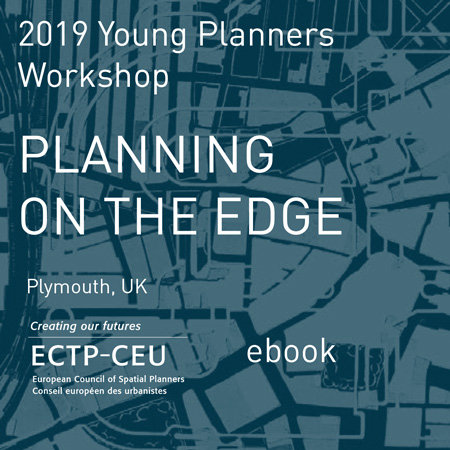General Objectives
General Objectives
The Young Planners Workshop is an activity from the ECTP-CEU in frame of its objectives as Association that provides its members a common framework for planning practice, planning education and identifies, celebrates and rewards examples of good planning all over Europe.
Within these objectives, the Young Planners Workshop aims to provide a framework for discussion and reflection among Europeans young planners on current urban issues as well as to disseminate the principles and objectives of the European Union relating to the territorial and urban planning.
The ECTP-CEU Young Planners workshop is organised in link with two other ECTP-CEU activities: European Biennial of Towns and Town Planners and the European Urban and Regional Planning Awards.
These events are bi-annualy; so one year the Young Planners Workshop topics and meetings are shared with the Biennial and the following year with the European Awards.
Before final presentation two online audio-meetings are foreseen to enrich contents of papers, improving exchanges of experiences between participants and to identify the points of discussion for the final presentations.
As conclusion of the Workshop, the ECTP-CEU publishes an e-book with all projects and works developed and presented during the Young Planners Workshop.
ECTP-CEU 2019 Young Planner Worshop : the e-book
In accordance with the ECTP-CEU's objectives, the initiative of the Young Planners Workshop seeks to set out young planner’s perspectives and experiences in a frame of new European cities paradigms
The workshop theme on planning on the edge focuses on a broad perspective of city frontiers and territories frontiers.
This perspective includes the relationship of cities with physical limits: the water; particularly by the sea and coast, rivers or lakes, (Planning coastal settlements, urban rivers corridors... etc, urban generation around the water...); but also relationships with other peripheral limits, nature urban voids; transitory zones in the city with people coming and going; even Edge as the transition from one physical environment to another: green, peripherial rural areas.
Border, frontier or divided cities can be considered as cities on the edge. A border cities close to the boundary between two counties, states or regions have highly cosmopolitan communities, as traveling and trading often go through the town. They can also be flashpoints for international conflicts, especially when the two countries have territorial disputes.
The workshop also includes the perspective of Cities on the edge thinking in cities located far from the centre of their country and sometimes closer to abroad with a potential to develop their position “on the edge” and its connectivity within Europe and the world.
Finally planning on the edge includes urban policies on the edge from a social-economic and cultural approach:
a) relationship with the periphery of the society, within the cities and amongst different kinds and scales of cities,
b) cities which have a “transit poles” social structure, “immigration port”... etc
c) thinking in the different effects and results of the globalization in big cities, small cities and rural areas.
